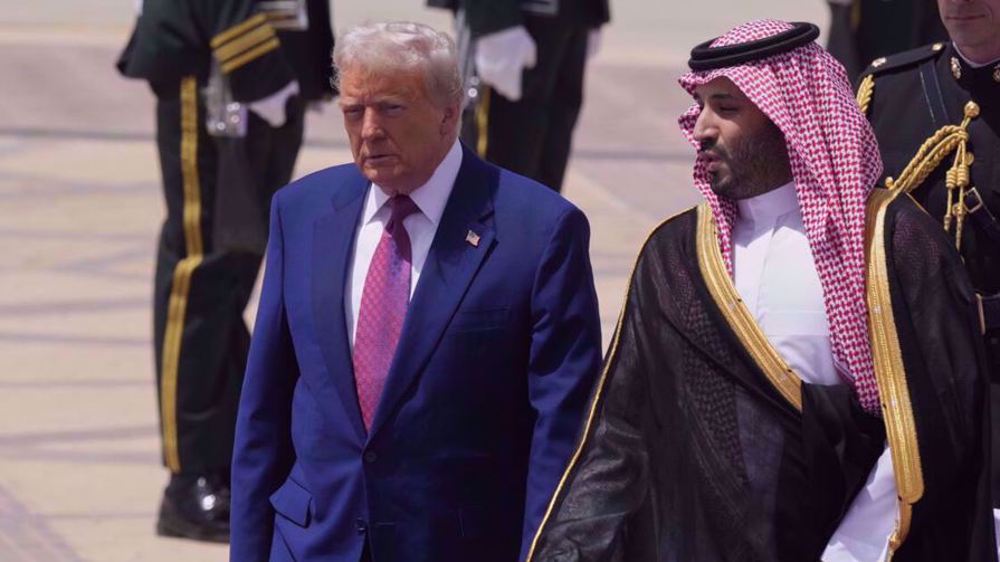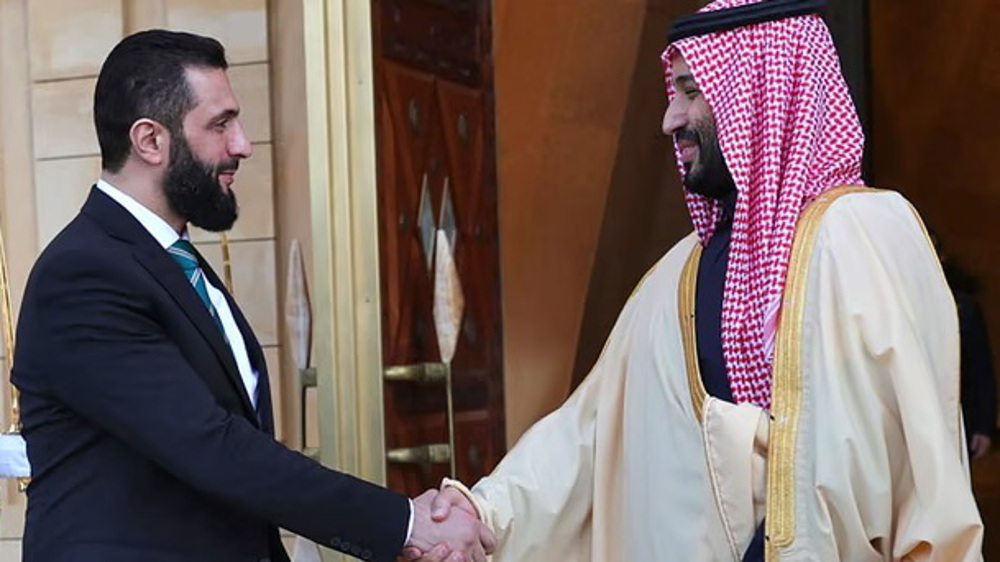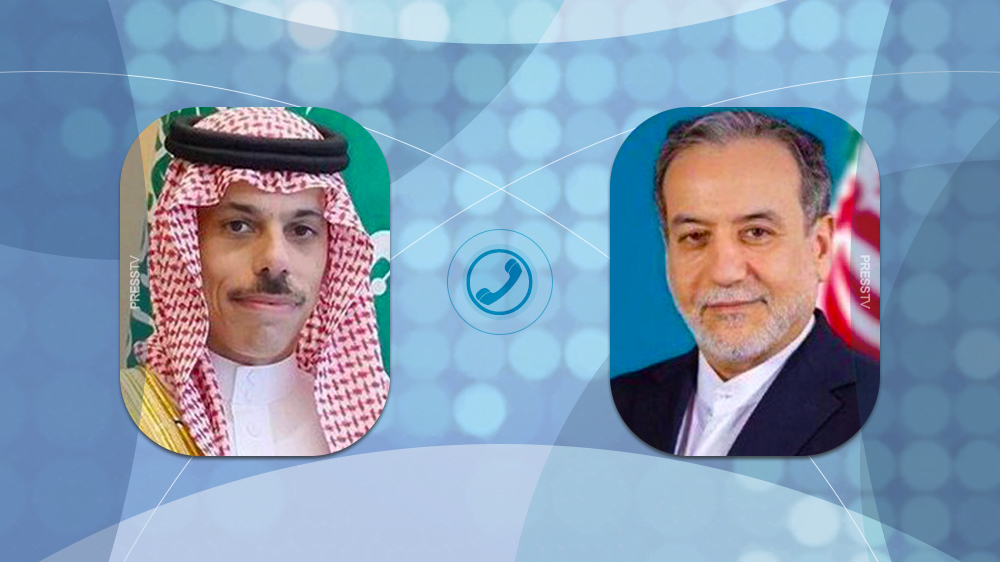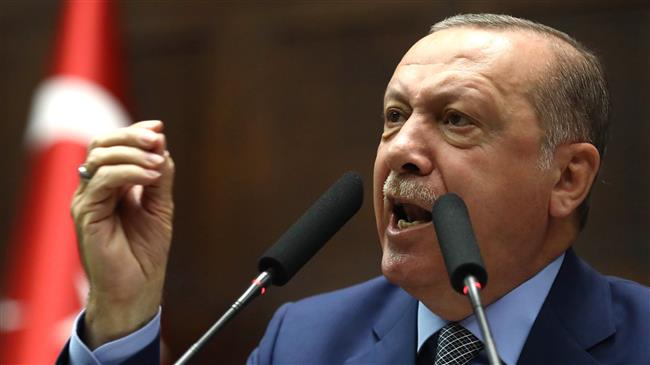Saudi Arabia rebuked at UN rights council over dire human rights record
Saudi Arabia has been castigated over its dismal human rights record at the United Nations Human Rights Council, as the Arab kingdom faces a torrent of widespread international condemnation over the “premeditated” gruesome killing of dissident Saudi journalist Jamal Khashoggi in its consulate in Istanbul last month.
The Saudi delegation, led by Bandar al-Aiban, head of the Human Rights Commission of the Arab kingdom, was bombarded by critical comments made by be member states on Monday, during a “Universal Periodic Review,” which all 193 UN countries must undergo every four years.
Khashoggi, 59, an outspoken critic of Saudi Arabia’s de facto ruler Crown Prince Mohammed bin Salman, disappeared after he entered the Saudi consulate in the Turkish city on October 2 to complete some paperwork for his forthcoming marriage.
Saudi authorities first claimed that the journo, who had been in self-imposed exile in the United States since 2017, exited the diplomatic mission less than hour after arrival. Then, they said he had been killed in the consulate during an interrogation by rouge operatives that had gone wrong.
However, as diplomatic pressure grew tremendously on Riyadh to give an account on the mysterious fate of its national, in an unexpected statement last month, Saudi Attorney General Sheikh Saud al-Mojeb admitted that Khashoggi had been killed in a “premeditated” attack in the consulate.
Istanbul Chief Public Prosecutor Irfan Fidan said last week that the ill-fated journalist had been strangled upon his arrival in the consulate, and then his body was dismembered and destroyed.
The gruesome crime, which has already caused an international uproar against Saudi Arabia, prompted a number of member states of the UN council on Monday to submit lists of detailed questions for the review, including questions from the US, the UK, Austria and Switzerland, on the Khashoggi case.
The US delegation condemned the “premeditated killing” and called for “a thorough, conclusive and transparent investigation” into the case, adding that the “results” must be made “public.”
The UK delegation, for its part, in a biting question asked Saudis that “given the recent violent death of journalist Jamal Khashoggi, can Saudi Arabia elaborate on their claim that the laws of Saudi Arabia guarantee freedom of opinion and expression?”
Al-Aiban reiterated in defense that Riyadh was investigating the case with a view to prosecuting the “perpetrators.”
Separately at the council on Monday, member states also criticized the abuses committed by a Saudi-led military coalition against the impoverished Yemeni nation since March 2015, when the so-called alliance, supported by the US, commenced a campaign of airstrikes and later on, a ground invasion of the peninsular country.
Last week, Washington called for an end to Saudi-led air raids in Yemen.
More than three and a half years into the war, Saudi Arabia has achieved neither of its objectives. Riyadh had declared at the start of the invasion that the war would take no more than a couple of weeks.
According to a new report by the Armed Conflict Location and Event Data Project, a nonprofit conflict-research organization, the Saudi-led war has so far claimed the lives of around 56,000 Yemenis.
The Saudi-led war has also taken a heavy toll on the country’s infrastructure, destroying hospitals, schools, and factories. The UN has already said that a record 22.2 million Yemenis are in dire need of food. According to the world body, Yemen is suffering from the most severe famine in more than 100 years.
UN member states end silence on Riyadh’s cruelty: Amnesty
Human rights groups and activists are constantly urging countries not to hold back from condemning Saudi Arabia for its violations of human rights.
“UN member states must end their deafening silence on Saudi Arabia and do their duty of scrutinizing the cruelty in the kingdom in order to prevent further outrageous human rights violations in the country and in Yemen,” said Samah Hadid, Amnesty International's Middle East director of campaigns, in a statement.
“The Saudi government’s long-standing repression of critics, exemplified by the extrajudicial execution of journalist Jamal Khashoggi last month, has until recently been willfully ignored by UN member states,” she added.
According to right groups, public beheadings at a frightening rate, muffling dissent, widespread human rights abuses, and war crimes in Yemen have made Saudi Arabia synonymous with one of the most repressive regimes in the world.
“All arms-supplying states must suspend their arms sales to Saudi Arabia and its coalition members, given the clear evidence documented by Amnesty International that they could be used to commit serious violations, including possible war crimes, in Yemen,” Hadid further said.
VIDEO | Pakistan, Afghan Taliban trade accusations after border clash
VIDEO | Venezuela races against time to rebuild homes bombed by US
Ex-IAEA chief warns US of ‘horrific’ costs of war on Iran
India’s Modi visits occupied territories to deepen ties with Israel despite Gaza genocide
Araghchi says ‘fair and balanced’ deal within reach ahead of Geneva talks
VIDEO | Trump’s 2026 State of the Union speech bellicose, short on policy
Iran’s president sees 'good outlook' for nuclear talks with US
Peter Mandelson suspected of misconduct in public office as UK envoy to US















 This makes it easy to access the Press TV website
This makes it easy to access the Press TV website